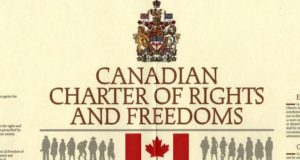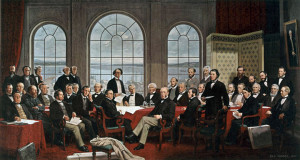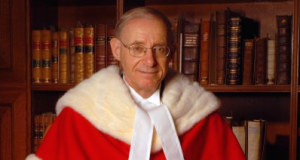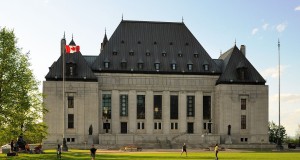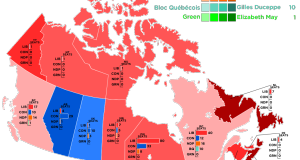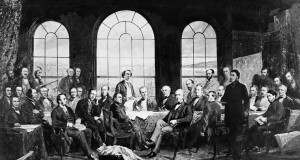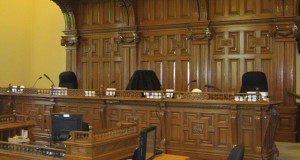This article will appear in the upcoming edition of Law Matters, a publication of the Canadian Bar Association Introduction The consensus in the academic community when it comes to interpreting the Charter is that more is better. There is little debate that the Charter is a “living tree,” such that its meaning must “evolve” over time so that it “accommodates ...
Read More »Author Archives: Asher Honickman
Court Slashes Lawyer’s Contingency Fee in Favour of Minor Plaintiff
In Batalla v. St. Michael’s Hospital, the plaintiffs alleged that the physician and nurses who delivered the minor plaintiff did so negligently and caused the minor plaintiff to suffer severe brain damage. He was born with very limited cognitive functioning, impaired motor skills and visual impairments. The parties settled the matter following a mediation in April 2014 for the all-inclusive sum of $6,625,000. Pursuant to Rule 7 ...
Read More »Sorry, Electoral Reform is Constitutional
Is the Liberal plan to reform the electoral system unconstitutional? Two recent pieces published in the Globe and Mail and Toronto Star suggest the answer is yes. The articles are well-written by knowledgeable individuals (respectively, a law professor and two former law clerks), but in my view their reasoning is flawed. Both pieces cite the 2014 Senate Reform Reference, in ...
Read More »Justice Stratas on the Decline of Doctrine
Justice David Stratas of the Federal Court of Appeal gave an excellent talk at the Canadian Constitution Foundation’s Law and Freedom Conference on January 8, 2016. The title of his keynote address was “Reflections on the Decline of Legal Doctrine.” It can be viewed here. The address focussed primarily on constitutional and administrative law. In Justice Stratas’s view, judges and academics ...
Read More »Justice Rothstein Casts Doubt on the Living Tree
I recently learned that, back in October, recently-retired Justice Marshall Rothstein gave a speech at the University of Saskatchewan, in which he criticized the “living tree” doctrine, which holds that the meaning of the Constitution may evolve over time – in most cases, beyond what the text can reasonably bear. The original living tree metaphor comes from the Privy Council’s decision in Edwards ...
Read More »“Clear and Definitive”: The Offence of Bestiality and the Rules of Statutory Interpretation
Last month, the Supreme Court of Canada heard oral arguments in the case R. v. D.L.W. The issue for appeal is not exactly garden variety. The Supreme Court has been asked to determine whether the offence of “bestiality” in the Criminal Code requires penetration. Background The facts are not in dispute and are disturbing to say the least. The accused respondent ...
Read More »The People Need Their Say on Electoral Reform
Prime Minister Justin Trudeau promised during the recent campaign that 2015 would be the last federal election to employ “first-past-the-post.” This is the electoral system familiar to Canadians, in which the candidate who wins a plurality of votes in each riding is elected to Parliament. In its place we would see the introduction of a more “representative” system, most likely ...
Read More »Banning “Hate Speech” is Beyond Provincial Power
Hate speech is back in the news. The Quebec government has recently tabled Bill 59, which, among other things, would prohibit “hate speech” – a term that is not defined. Anyone who “engages in or disseminates” hate speech is liable to be fined up to $10,000 for the first utterance and $20,000 for the second. The Bill would also ...
Read More »The True American Import to Canada is the Living Tree, not Originalism
Constitutional originalism, which holds that the meaning of the Constitution remains constant with the passage of time, does not enjoy a great deal of support Canada. It is dismissed as an American phenomenon, and a distastefully conservative one at that. The Canadian Constitution, we are told, is a “living tree” and it is therefore the responsibility of judges to rediscover ...
Read More »Good Law in the Face of Hard Facts
In a recent decision of the Ontario Court of Appeal, R. v. Jacques, Justice Lauwers correctly applied the law despite his understandable reservations about the outcome. Mr. Jacques had been convicted before the Provincial Offences Court on two counts of driving without automobile insurance and one count of driving with a suspended license. His convictions were upheld on appeal before the Ontario ...
Read More » Advocates for the Rule of Law
Advocates for the Rule of Law
